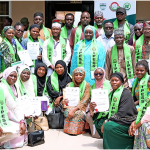



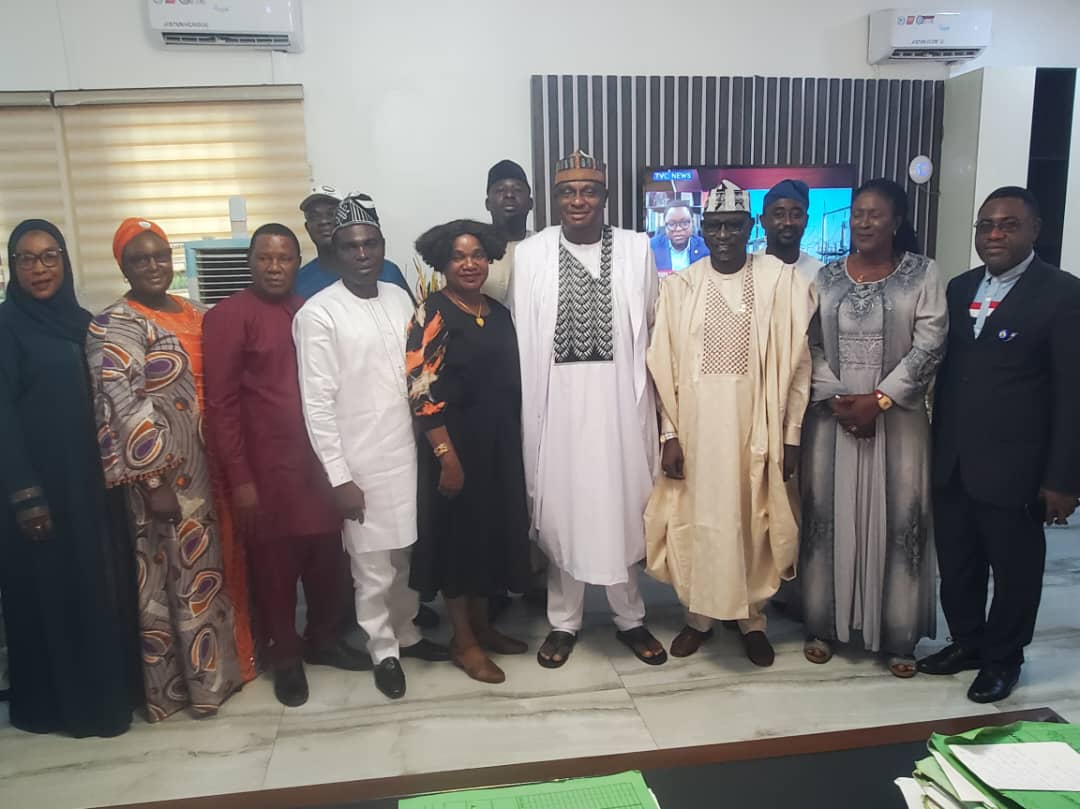

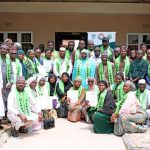
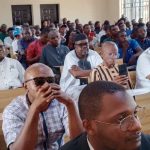
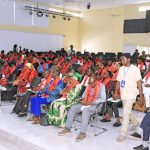

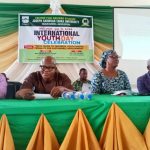
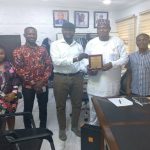
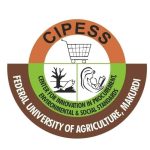
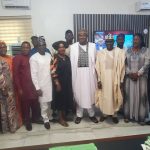
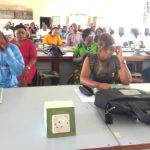
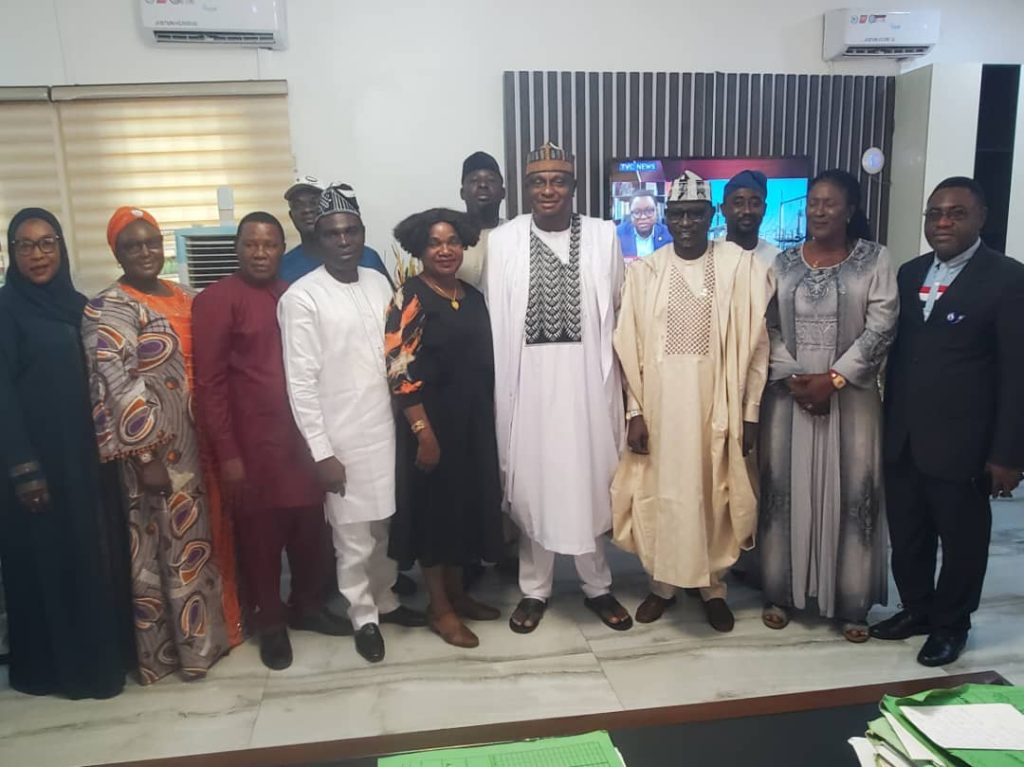
In a concise effort to propel the growth of the University and humanity at large, Joseph Sarwuan Tarka University, Makurdi (JOSTUM) on Thursday, May 9, 2024 hosted the Senior Staff Association of Nigerian University (SSANU) Zonal Executive Council Meeting.
This 10th regular edition of the Zonal Executive Meeting (ZEC), pulled delegations from the North-Central Zone to deliberate and address pressing concerns of the Union, with the view to proffering best solutions for the leaders and the led.
Speaking during a Courtesy visit to the Vice-Chancellor before the ZEC meeting, the National President SSANU, Comr. H. Ibrahim stated that the ZEC Meeting of the North-Central part of Nigeria covering Six States, with the population of State and Federal Universities sited within.
According to him, “the Zonal meetings are usual rituals which the VC is fully aware, is where branches sit to discuss issues pertaining and affecting the Union and its membership.” This he added, “is also where branches also come up with agenda for discussion and once it is harmonised within the Zone, it makes it easy for tabling before the National Executive Council.”
At the foundation laying venue (Gbajimba road), the VC who was elated, appreciated the Union for the honour, stated that for him, it was a rare privilege to lay the foundation of the project. He remarked that, “not so many officers have the opportunity to have their names on something that will stand from one generation unto another generation.” He assured that the team will give their full support to ensure the project is completed in due course.
As a strategy, he admonished that the project be parted into phases, with the most expensive phase taken up first to ensure a progressive project. He therefore called on them to barricade the land from trespassers, and also keep the environment tidy.
Similarly, the National President, while commenting on the 2 hectares Secretariat plan, charged them to include compartments such as a creche and Shops, and commercialize the Hall of the Secretariat so as to generate revenue for the smooth running of the Union. This he added is Key as Union dues alone would not ensure the viability of the project and structure afterwards.
In his address during the plenary session at the Senate Chamber, Comr. Haruna stated that, “I have seen a citadel of learning that has decided to imbibe the core mandates; teaching, research and community development.” He added that this is not his first time being in JOSTUM, but he has come across new things that he has not seen in the last one year. This he explained ranges from the unbundling of Courses, construction of known and unknown projects, rapid and consistent promotions both in the Academic and Non-academic Cadres, as well as the introduction of other welfare packages, amongst others. He noted that it is a clear expression that the management has the interest of the University at heart; which is the heartbeat of the Union.
The President indicated that regardless the prolific structures and equipment an Institution put in place, if Staff motivation is lagging, then all other effort would be almost null and void.
He commended the Vice-Chancellor for all the giant strides recorded in this last one year. He disclosed that their visit and deliberations would X-ray and mirror issues even beyond SSANU as a Union but with the inclusion of the Education Industry, and the University’s sub-sector – while suggestions would be made, and a statement made at the end to conscientize the populace.
He called on all members to remain focused and committed as stringent efforts are being made to ensure their entitlements and petitions to Government are achieved in no distant time.
In his opening remark, the Vice – President SSANU, North – Central, Comr. Niyongu Emmanuel A. expressed that the ceaseless commendations of the VC is no sycophancy but an honest acclaim of the exceptional things he is doing in the University.
In her welcome address, the Chairperson SSANU – JOSTUM, Comr. Ruth Kpamor revealed that, “SSANU-JoSTUM has never lagged behind in any aspect as far as the Union is concerned.” She maintained that “the branch hosted NEC in the years 2013 and 2019 and we are today in May 2024 hosting ZEC.” All these she attributed to the understanding of Congress members that understand the concept of Unionism and the workings of the Union.
Comr. Kpamor itemized successes achieved under their stewardship to include; improved welfare for Staff, renovation of SSANU-JOSTUM hostel, visits to IDP Camps, carrying out some Corporate Social Responsibilities, as well as the construction of SSANU-JOSTUM Secretariat.
She however called on the management and the NAC of SSANU to assist in ameliorate some of the challenges bedeviling the Union. These challenges she highlighted include; inaccessible road to the University, the inability of Union members to access their savings with the National Housing Fund at retirement, and the reinstatement of the University’s Primary School Staff.
Declaring the event open, the Vice – Chancellor JOSTUM, Prof. Isaac N. Itodo who spoke on behalf of all the recipients of the awards conferred on them by the Union at the event, called on the Union to centre their discussions around the causes of their problems and the methods to deploy in getting what they want from the Government.
He advised them to in subsequent times, deploy people with social Intelligence Quotient (IQ’s) and networks in engaging the Government, and not just the best of intellectuals that they have for maximum results.
He also added that all-time tested networkers with vast knowledge and expertise should also be their new approach especially as their vast exposures can teach them how best to be best Union leaders and followers.
He assured them of the continued partnership of the management to work together in bringing out the best in the Institution.
There were also goodwill messages from Sister Unions such as NAAT and NASU, as well as other prestigious personalities for their outstanding contributions to the University.
The event which began with a prior reception gala held at the VC’s Lodge, had a session for the conferment of awards to deserving personalities for their immense contributions to the growth of the Institution.





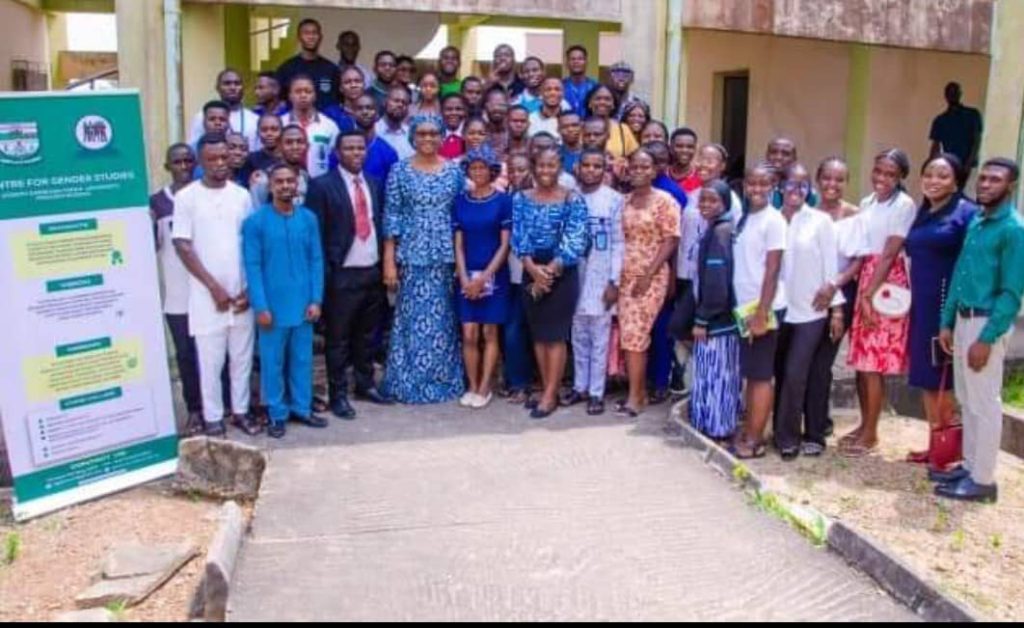
Commemorating the 2024 International Youth Day, the Center for Gender Studies, Joseph Sarwuan Tarka University, Makurdi organized a one-day symposium with the theme: “FROM CLICKS TO PROGRESS: YOUTH DIGITAL PATHWAYS FOR SUSTAINABLE DEVELOPMENT.”
The event was held on Monday, 12th August, 2024 at the College of Agricultural Economics and Extension Auditorium, North Core.
In his opening remarks, the Vice Chancellor, Engr. Prof. N.I Itodo represented by the Deputy Vice Chancellor Academic, Prof. Fidelis Ayatse charged the participants to make good use of the event as it x-rays the opportunities and challenges youths face in accessing digital technology. He urged them to utilize the knowledge to foster positive change.
In her welcome address, the Organizer and Director, Center for Gender Studies, Prof. Mrs. Orefi Abu said the International Youth Day is a day chosen by the United Nations celebrated globally every year to recognize young people’s vital contributions – and the need to release the potentials that they hold towards development and global economy. She added that the Day also recognizes their challenges and how to reduce them.
Prof. Abu noted that this year’s theme highlights the role of digital technology in achieving sustainable development goals – and draws attention to the important roles that youths play in these innovative processes.
She said that as young people, they have the ability to use their digital skills to promote sustainable development, and positive changes both within and outside our communities. She declared that the Center is ready to collaborate with the Student Union and other associations in the University to mark this day, going forward.
In the lead presentation titled “SIGNIFICANCE OF DIGITAL LITERACY FOR YOUTH EMPOWERMENT: CHALLENGES AND OPPORTUNITIES,” Dr. Chris Eche defined digital literacy as the ability to effectively and critically navigate, evaluate and create information using a range of digital technologies. He said there are two sets of people in the digital space; those who are able to critically navigate and those who are able to create information. He outlined the different levels of digital skills to include; Basic digital skills, Internet and communication skills, Information literacy, Literacy skill set, Content creation level, Cyber security and Problem solving.
Dr. Eche acknowledged that digital literacy is crucial for empowering the youth in various aspects of life from education and employment, to civic participation and personal development. He stated that while there are challenges to achieving digital literacy there are also significant opportunities to address these challenges through targeted policies, educational reforms, community initiatives, and innovative learning.
Presenting the second paper titled “YOUTH AND DIGITAL ADVOCACY: THE POWER OF SOCIAL MEDIA FOR SOCIAL CHANGE AND SUSTAINABLE DEVELOPMENT,” Dr. Mrs. Hephzibah O. Obekpa observed that in an increasingly advancing world, digital literacy has been identified as a powerful tool for driving social change. She said Social media platforms are not just for communication but powerful travel engines for organization and activism.
She pointed out that the power of the youth in digital advocacy can be explored through their unique perspectives and passion, creativity and innovation, energy and resilience, education and knowledge, social media movement, policy influence and intergenerational collaboration.
Furthermore, She explained that Social media for change and social development should be one that uses the resources responsibly with the next generation in mind – emphasizing that any change that has to be sustainable must look beyond the current generation.
Dr. Obekpa concluded that young people are not the leaders of tomorrow but change makers of today. She said digital liaising offers unprecedented opportunities for youths to amplify their voices, influence policies, and drive social change on a global scale; therefore, it is crucial that young advocates are equipped with skills, knowledge, and critical framework to navigate effectively and responsibly.
Speaking on the topic “YOUTH AND MENTAL HEALTH IN THE DIGITAL AGE” Dr. Nathaniel Iber said everybody loves good health whereas mental illness is an enemy of progress and it cuts across all ages. He noted that whenever a persons abnormal thoughts, feelings or sensory impressions cause him objective or security harm mental health is said to be present.
Dr. Iber explained that mental health could be caused by alcohol, excess stress and inability to organize time well. He opined that social media has become an integral part of youths’ lives, affecting their self esteem, body image, and overall mental well-being.
The Doctor said the impact of social media could result in anxiety and depression through cyber bullying, online harassment and digital addiction however it also provides platforms where one can seek help, like, seeking online therapy and also digital literacy and education.
In a closing remark Prof. Solomon Shola suggested that the University should enter into partnership with a Company to provide incoming students with tablets so as enhance easy access to information through their years of study.
He thanked the organizers of the event and hopes that the programme be sustained.
The event witnessed sessions of questions and answers, as well as drama presentation.
